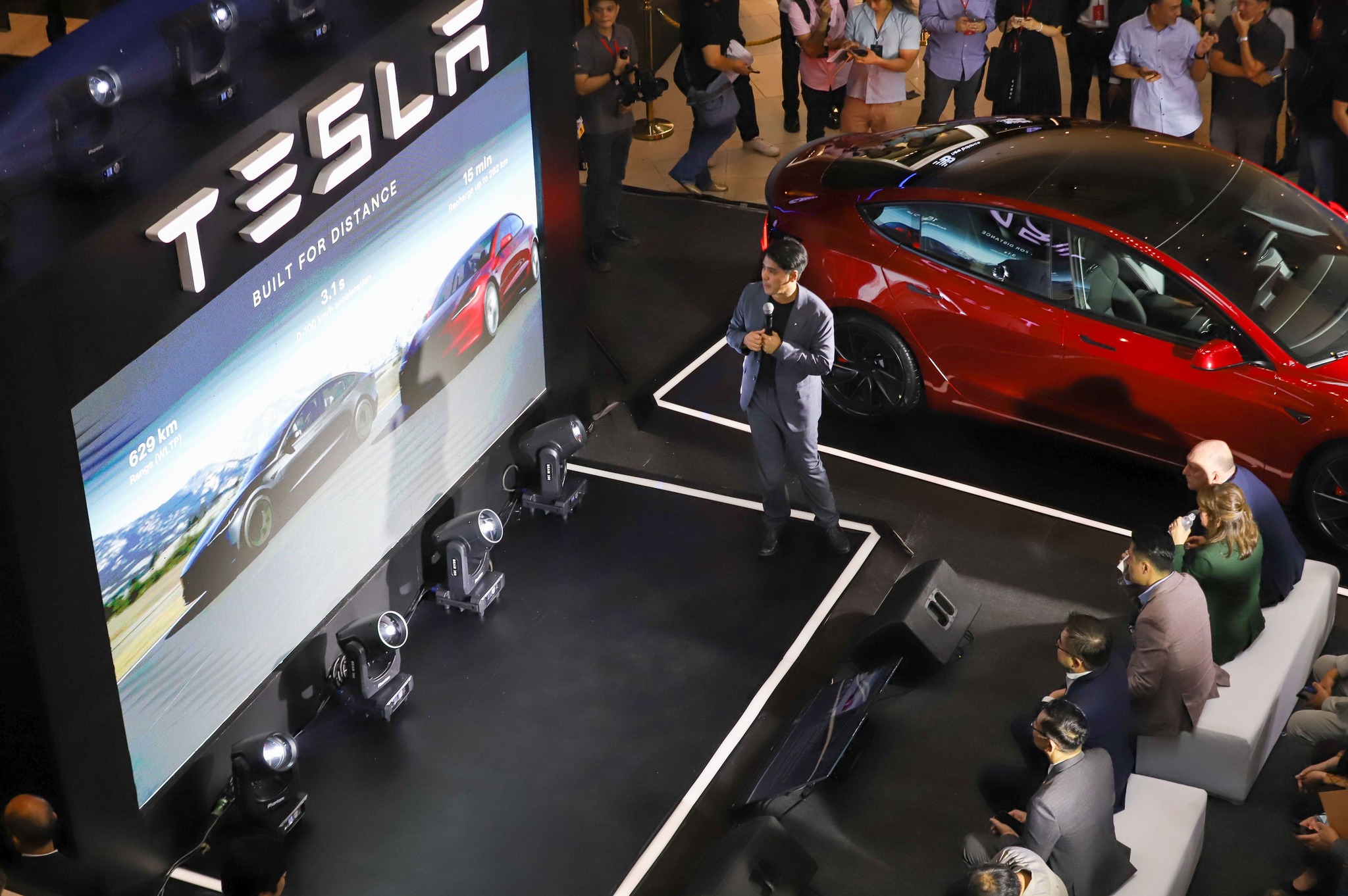Business and Economy
Tesla’s first EV flagship store in PH launched
By Raymond Carl Dela Cruz, Philippine News Agency

American electric vehicle manufacturer #Tesla launches its first flagship store in the Philippines at Uptown Mall in Bonifacio Global City, Taguig City on Friday (Nov. 8, 2024). The store’s initial offerings are Model Y and Model 3 for delivery early next year. (PNA photo by Robert Oswald Alfiler)
MANILA – American electric vehicle (EV) manufacturer Tesla officially launched its first flagship store in the Philippines at the Uptown Mall in Bonifacio Global City in Taguig on Friday.
The store’s initial offerings are two Tesla models – Model Y and Model 3 – and will begin delivering these cars to customers in the Philippines early next year.
Both Model Y and Model 3 are available in three different trims – the rear-wheel drive trim with the lowest price, the long-range trim featuring the same performance but with a longer range, and the performance trim with the best acceleration and top speed.
The Model Y is priced from PHP2.369 million to PHP3.299 million while the Model 3 is priced from PHP2.109 million to PHP3.099 million.
As part of the company’s official entry into the Philippine market, it also promised to install supercharging stations at the Basement 2 parking lot of the Uptown Mall and to add more supercharging sites in the future.
These chargers can deliver enough energy for 120 km. of driving in five minutes.
Charging at these stations will cost PHP19 per kWh, with a full charge for Tesla vehicles costing about PHP1,140.
In a statement, Tesla committed to help the Philippines in its drive for a “zero-emission and greener future.”
“As part of Tesla’s commitment to the Philippines, the company will continue to develop the experience center, service, and support, and charging infrastructure in the country, aimed at delivering a seamless Tesla ownership,” it said.
As EVs, Tesla vehicles are also entitled to an exemption from number coding as part of the Philippine government’s incentives towards EVs.
In April, President Ferdinand R. Marcos Jr. directed the Department of Energy, Department of Transportation, and other government agencies to accelerate the implementation of an EV development plan in the country, with a particular focus on public transport.
He raised the government’s EV penetration target to 50 percent from 10 percent by 2040 to reduce vehicle emissions towards combatting climate change.





















